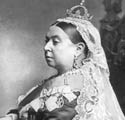Richard III (2 October 1452 – 22 August 1485) was King of England from 1483 until his death two years later. He was the last king of the House of York and the last of the Plantagenet dynasty.
His defeat at the Battle of Bosworth marked the end of the War of the Roses. He was succeeded by Henry Tudor (Henry VII)
Richard’s brother Edward IV died in 1483. The next in line was the 12-year-old King Edward V. However, as he was only 12 years old, Richard was named Lord Protector of the realm until he came of age.
However, a campaign was launched condemning Edward IV’s marriage to the boys’ mother, Elizabeth Woodville. An assembly of Lords and commoners endorsed these claims and the marriage was annulled. This meant, Richard III was promoted from Lord Regent to King Richard III in 1483.
Edward V and his brother then disappeared. This led to accusations they had been murdered by Henry in order to cement his hold on the throne.
Richard’s reign was troubled and he spent much time putting down major rebellions. The first was by a former ally, Henry Stafford, 2nd Duke of Buckingham. The revolt collapsed and Stafford was executed.
A more serious rebellion occurred in 1485, headed by Henry Tudor. This was a continuation of the war of the Roses. Landing in Wales, Henry Tudor raised an army of mercenaries and successfully defeated Richard III in the Battle of Bosworth Field. Henry refusing to flee, died in battle. The last English King to die in battle.
This proved the end of the Plantagenet line and led to the Tudor Dynasty.
Related pages


